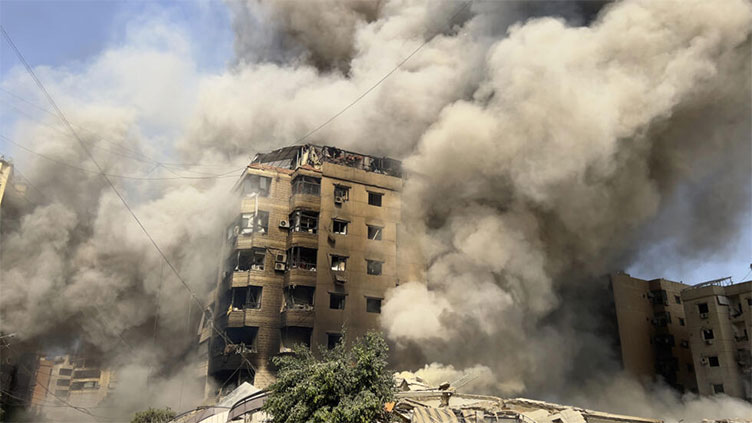Israel continues strikes on Lebanon as Iran vows to avenge Nasrallah death

World
Iran has vowed to avenge Iran-backed Hezbollah group's leader, Sayyed Hassan Nasrallah.
BEIRUT (Reuters) - Israel struck multiple targets in Lebanon on Sunday, after killing the Iran-backed Hezbollah group's leader, Sayyed Hassan Nasrallah, on Friday. Iran has vowed to avenge his death, while Lebanon's top Christian cleric has urged diplomacy in what risks turning into a wider Middle East conflict.
The Israeli military said Sunday that the air force had "struck dozens of Hezbollah terror targets in Lebanon, including launchers that were aimed toward Israeli territory – structures in which weapons were stored and additional Hezbollah terrorist infrastructure".
The navy had intercepted a projectile approaching Israel from the area of the Red Sea and another eight projectiles coming from Lebanon had fallen in open areas, it said in a morning statement.
Lebanon's health ministry said 33 people had been killed in Israeli strikes on Lebanon on Saturday.
More than 700 people have been killed in Lebanon since 23 September, when Israel intensified its airstrikes around the country forcing tens of thousands to flee their homes, the ministry said.
In Beirut, displaced families spent the night on the benches at Zaitunay Bay on the waterfront.
The United Nations' World Food Programme (WFP) said in a statement on Sunday it had launched an emergency operation to provide food for up to 1 million people affected by the conflict in Lebanon.
The ongoing bombings in Lebanon are ''compounding the fragility of a population burdened by accumulated crises,'' the WFP highlighted.
CONCERN OVER WIDENING CONFLICT
Nasrallah was killed in a massive Israeli air attack on Friday on the group's headquarters in Beirut's southern suburbs.
Hezbollah confirmed his death on Saturday.
Israel said it had also killed senior Hezbollah official Ali Karaki and other commanders along with Nasrallah.
Nasrallah's elimination was a major blow to Hezbollah and to Iran, removing an influential ally who helped build Hezbollah into the linchpin of Tehran's network of allied groups in the Arab world.
Hezbollah has vowed to keep fighting Israel and continued to fire rockets at it, including a salvo on Sunday morning.
Lebanon's top Christian cleric Bechara al-Rai urged diplomacy in the conflict and said Israel's killing of Nasrallah had wounded the hearts of the Lebanese people.
The escalation in the conflict over the last fortnight has increased fears it could spin out of control, potentially drawing in Iran, Hezbollah's principal backer, as well as the United States.
Iranian Supreme Leader Ayatollah Ali Khamenei was moved to a secure location in Iran after Nasrallah's killing, sources told Reuters. Khamenei said Nasrallah's death would be avenged and his path in fighting Israel would be pursued by other militants.
Tehran has called for a United Nations Security Council meeting on Israel's actions in Lebanon and elsewhere in the region, warning against any attacks on its diplomatic facilities and representatives.
A senior member of Iran's Revolutionary Guards, deputy commander Abbas Nilforoushan, was also killed in Friday's attacks, Iranian media reported.
US President Joe Biden on Saturday described Nasrallah's death as a "measure of justice for his many victims" and fully supported Israel's right to self-defence, but underlined it was "time for a ceasefire".
Hezbollah and Israel have been fighting in parallel with Israel's war in Gaza against Hamas since the Iran-backed Palestinian group's attack on Israel on 7 October last year.
Hezbollah has said it would cease fire only when Israel's Gaza offensive ends.


